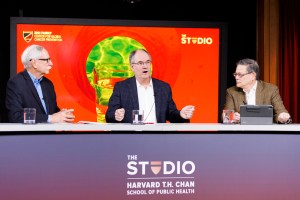Arts & Culture
-
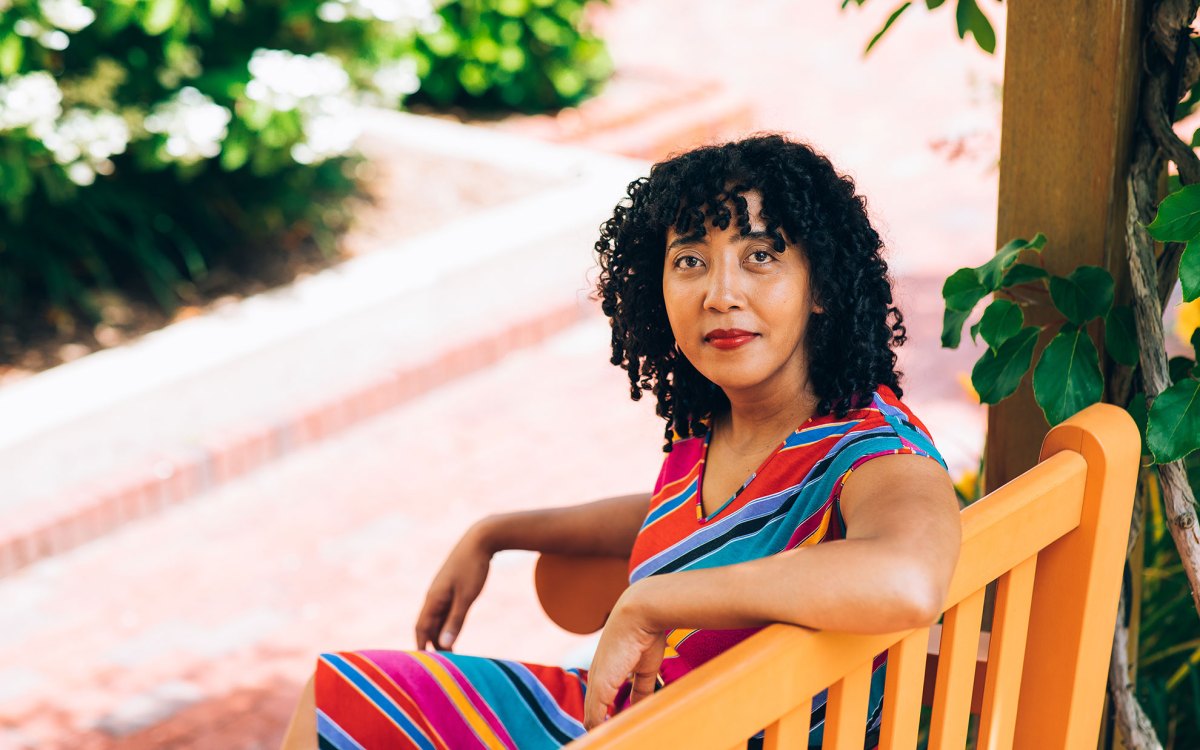
Immersed in Toni Morrison’s multitudes
Professor’s book is an appreciation of Nobel-winning novelist’s ‘difficult’ oeuvre — and a defense
-

Audiobooks don’t really count as reading? Think again.
Education scholars say rigor, learning same as paper, stigma an unnecessary hurdle
-

Retelling Frederick Douglass’ story, with a soundtrack
Senior composes musical about abolitionist’s early life
-
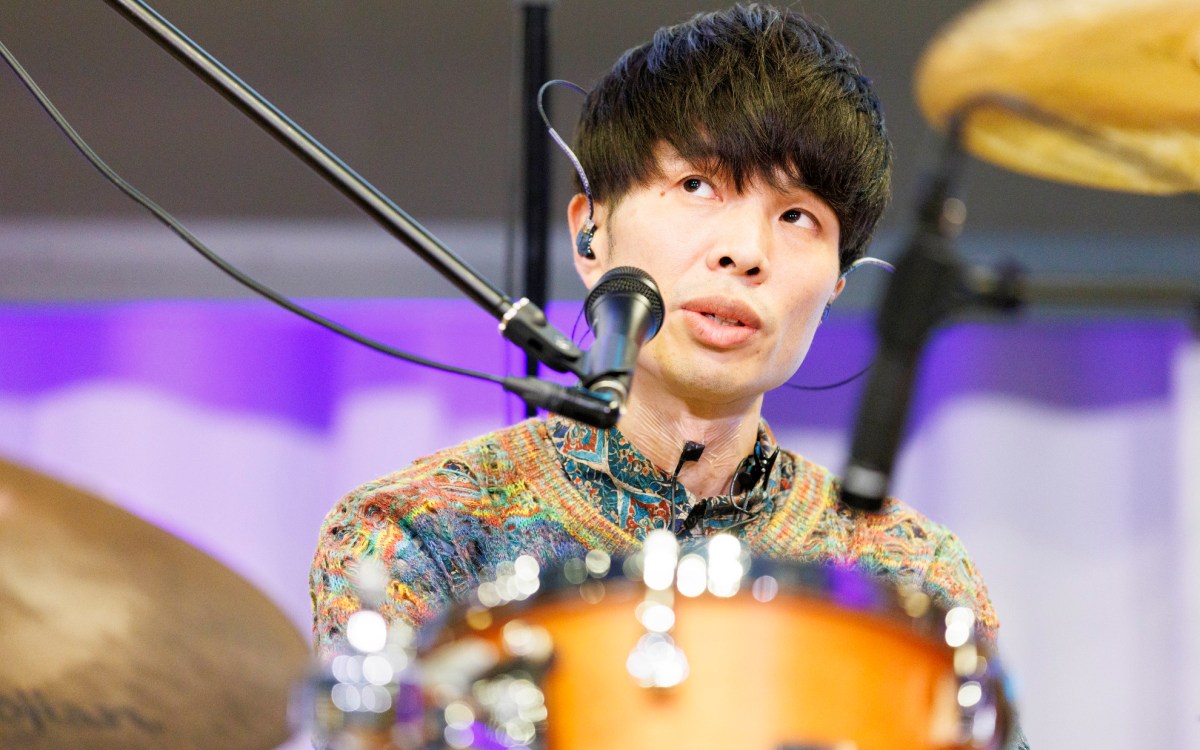
‘The sound stopped suddenly’
After rare condition robbed drummer of ability to play music, science led him back
-

Moved by what’s missing in Homer’s ‘Harrow’
Curator launches series steeped in U.S. history
-

Tina Fey’s keys to a good joke: Snark, confidence, surprise
Comedian keeps Harvard crowd laughing with longtime co-writer Robert Carlock ’95
-
The sound of summer music
The musically inclined are drawn to Harvard from near and far each summer. They come together to create the sound of music through Harvard’s Summer School ensembles.
-
Sema Vakf Collection of Turkish Classical Music now available at Loeb Music Library
Turkish-born businessman Altan Ender Güzey has ensured the traditional music from the Republic of Turkey is kept alive for future generations with a donation of the Sema Vakf Collection of Turkish Classical Music to the Loeb Music Library.
-
Visiting faculty bring their art along
The “Visiting Faculty 2009-10” exhibit highlights the work of eight visiting faculty at Harvard’s Department of Visual and Environmental Studies.
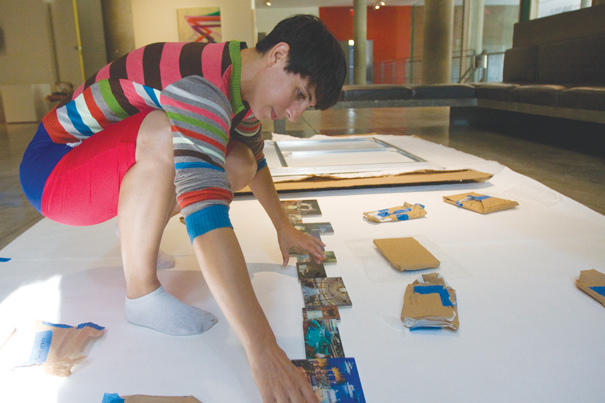
-
Norton Lectures interrogate the novel
Orhan Pamuk, winner of the 2006 Nobel Prize for literature, will deliver Harvard’s traditional Charles Eliot Norton Lectures, in a series of six talks on novels and novelists that begin Sept. 22.
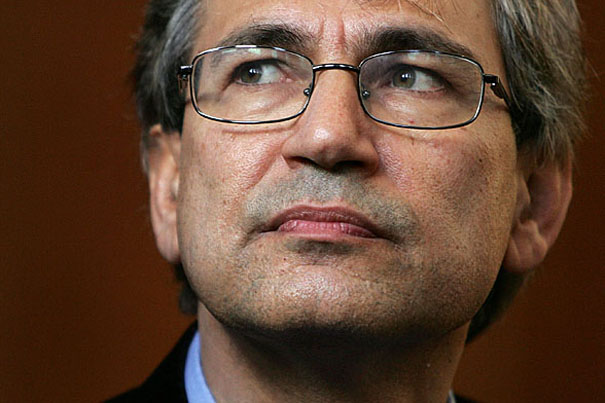
-
The sound of music
Students perform and perfect their talents as they tap into a Harvard tradition.
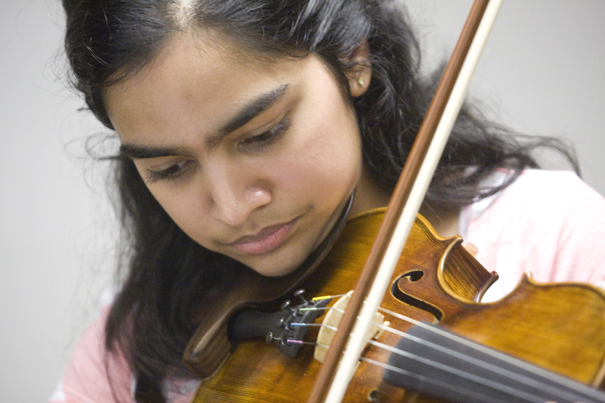
-
Justice for all
Michael Sandel, the Anne T. and Robert M. Bass Professor of Government, has authored a new book unpacking today’s most prevailing political and ethical quandaries.
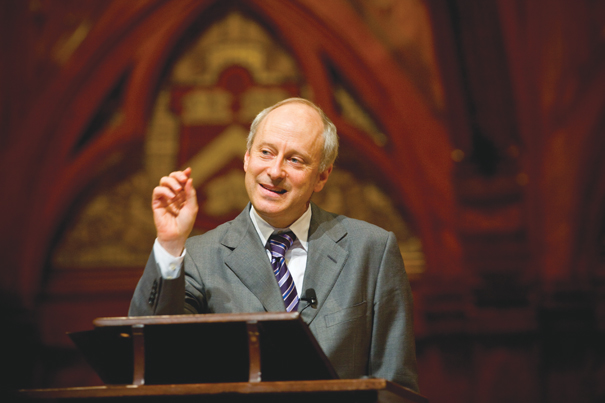
-
Longfellow online exhibition recognized by ACRL
The ACRL Rare Books and Manuscripts Section has selected the online exhibition “Public Poet, Private Man: Henry Wadsworth Longfellow at 200” as a winner of the 2009 Katharine Kyes Leab and Daniel J. Leab “American Book Prices Current” Exhibition Award.
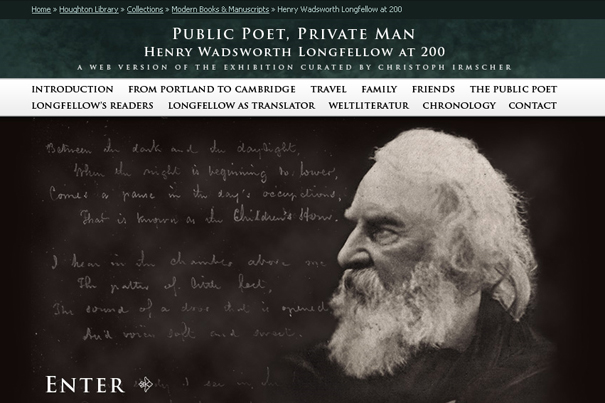
-
Harvard Film Archive acquires Just Film Stills
Lothar and Eva Just have recently made their collection of film stills and other publicity materials available to the Harvard Film Archive (HFA).
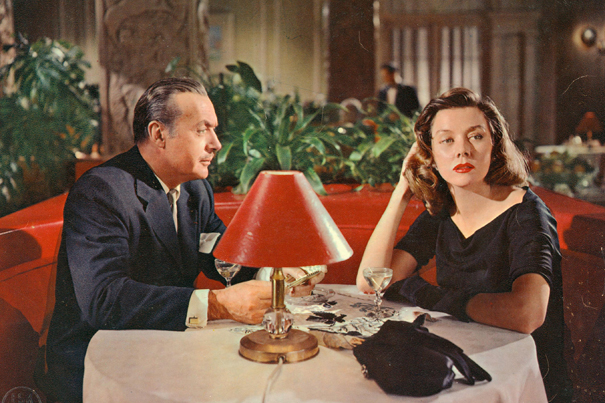
-
Oldest-known fibers to be used by humans discovered
A team of archaeologists and paleobiologists has discovered flax fibers that are more than 34,000 years old, making them the oldest fibers known to have been used by humans.
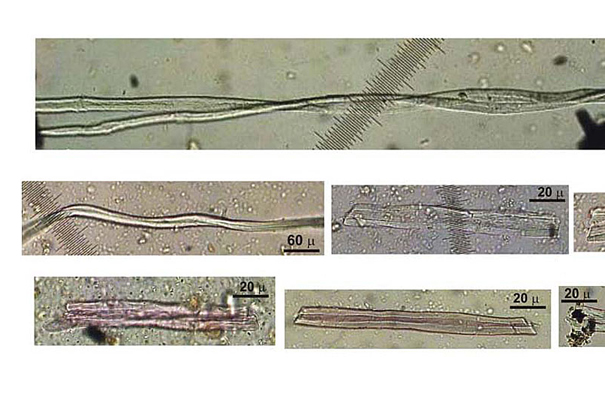
-
The Origins of Canadian and American Political Differences
Guns, government, same-sex marriage — the U.S. and Canada couldn’t be more dissimilar. Kaufman explores the history and culture of the two lands and asks why Canada is so close, yet so far away.
-
How Professors Think: Inside the Curious World of Academic Judgment
Lamont tells all in this behind-the-scenes work on the mysterious underpinnings of academia. Be in the room when the greatest thinkers meet behind closed doors and talk about how excellent excellence is.
-
Human Documents: Eight Photographers
Media maestro Robert Gardner presents this stunning array of photographs, or, “human documents,” which explore geography, culture, and our shared humanity through a universal visual language.
-
Up Close, part 2
In the fast pace of our daily lives we may overlook the details which, collectively, create a stunning backdrop for all that happens within the University. Hundreds of historic volumes stand as individual works of art inside the Houghton and Widener Libraries.
-
Johnson at 300
Harvard’s Houghton Library, home to a comprehensive collection related to 18th century English literature, sponsored a three-day international literary celebration of lexicographer, poet, essayist, and moralist Samuel Johnson, born 300 years ago this year. His work has inspired centuries of scholarship and generations of fervent ‘Johnsonians.’
-
‘The Donkey Show’ kicks off a first season for Diane Paulus
Harvard’s new American Repertory Theater director Diane Paulus ’88 takes a classic Shakespeare comedy for a spin on the disco floor with “The Donkey Show.”
-
Child psychiatrist pens her past
Psychiatrist Nancy Rappaport uncovers a relationship with the mother she scarcely knew in her powerful familial memoir. Infused with accounts of treating her own teenage patients, Rappaport plumbs the bond between parents and children while closing in on healing.
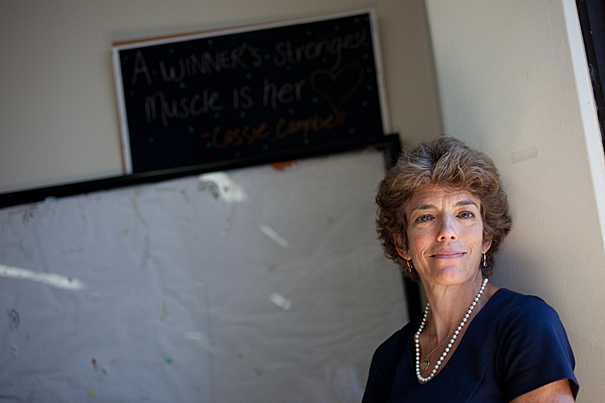
-
Helping others thrive
As the new executive director of the Harvard University Native American Program, Shelly Lowe plans to help Native American students utilize the resources that are available to them through the University.
-
Making music and keeping the faith
The father of two young children and an amateur musician, Matthew Myer Boulton, HDS associate professor of ministry studies, is investigating the spiritual dimension of human experience through the use of song with his newly formed band Butterflyfish.
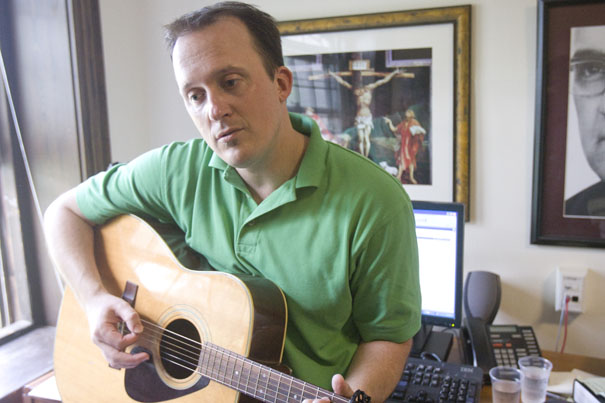
-
Nine Graduate Students Receive Loeb Fellowships
Harvard Divinity School (HDS) has announced nine recipients of John L. Loeb Fellowships for summer and term-time research in 2009.
-
Harvard-Yenching Institute selects 10 for 2009-10 scholarships
The Harvard-Yenching Institute has selected 10 students from major universities in Asia as fellowship recipients in its Doctoral Scholarship Program, Harvard-Yenching Institute and Regional Studies-East Asia Program, and training program in comparative literature at Harvard.
-
Finding the founding ideas
In 1788, Thomas Shippen of Philadelphia, a citizen of the world’s newest nation, visited the French royal court at Versailles. He was awed by its pomp, its riches, and – as he wrote – its “Oriental splendor.” But Shippen was also repulsed. He remarked on the arrogance and waste of royal life, and on the fact that it required great suffering among France’s unrepresented poor.
-
Designer dreams
Callum Gilbert was an unemployed bricklayer and high school dropout when in 2006 he was attacked outside a hip-hop concert in his native Liverpool, England. This summer, Gilbert – now 22 – is studying at Harvard’s Graduate School of Design (GSD).
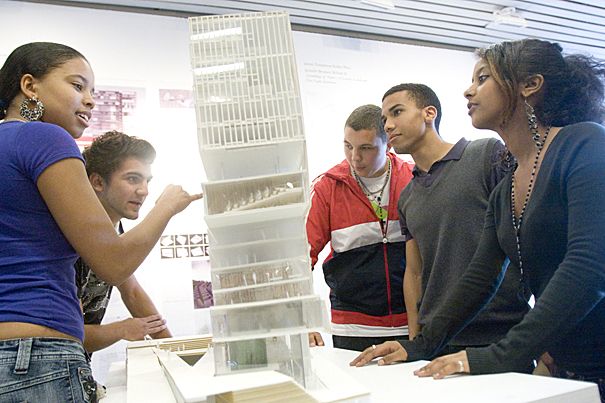
-
History on a small scale
On the second floor of Harvard’s Science Center is a temporary exhibit of 75 patent models from the 19th century, a time of prolific American invention that produced the revolver, zippers, trolley cars, and cash registers.
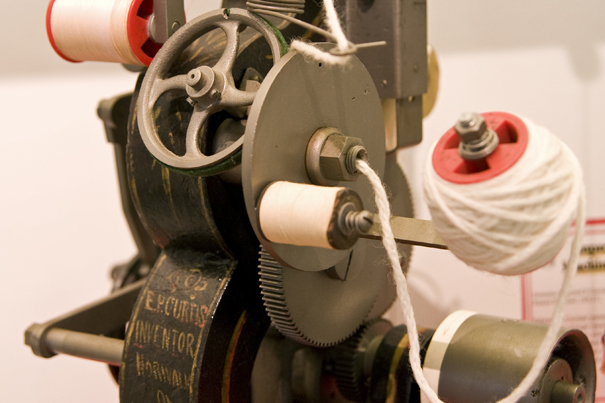
-
Impressions of women
More than ever, the Harvard Art Museum is making it easier for scholars and students to use its permanent collection (more than 250,000 works) to shed light on a variety of disciplines.
-
Peabody Museum receives grant to preserve maps, plans, and drawings
The Peabody Museum of Archaeology and Ethnology has been awarded a $150,000 grant from the U.S. Institute of Museum and Library Services (IMLS).
-
Harvard Department of Music announces $226,000 in fellowships
The Music Department’s Oscar S. Schafer Award is given to students “who have demonstrated unusual ability and enthusiasm in their teaching of introductory courses, which are designed to lead students to a growing and lifelong love of music.” This year’s recipients are David Sullivan and Karola Obermüller.
-
Peabody awards photography fellowship
The Peabody Museum of Archaeology and Ethnology has recently announced Alessandra Sanguinetti as the recipient of the 2009 Robert Gardner Fellowship in Photography.
-
Seceding from the secessionists
Deep in Civil War Mississippi, where manicured plantations gave way to wild swampland and thick pine forests, a young white man named Newton Knight led a ragtag band of guerilla fighters against the Confederate Army. His story is one of personal bravery and unwillingness to adhere to the secessionist movement that all but surrounded him.
-
Two views of disparate cultures
Art historian Kellie Jones, the child of two writers, grew up in the 1960s and 1970s on Manhattan’s Lower East Side. It was a place of cultural ferment, creation, and comparative racial freedom. Jones is exploring new visual and literary ways to convey her personal history. Legal scholar Stacy Leeds, an expert in tribal law, once served on the Cherokee Supreme Court — the youngest ever to do so, and the only woman.
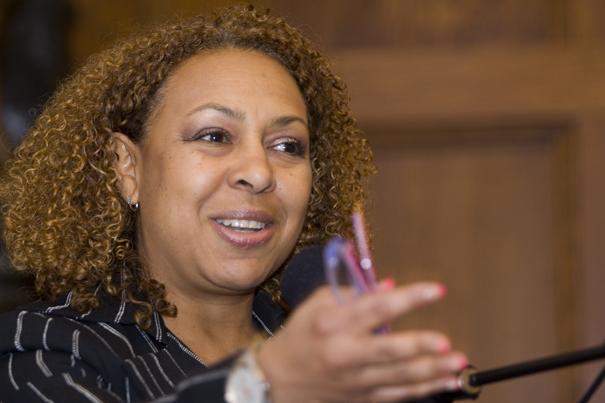
-
Sarah Messer’s surreal poetics
With long, sun-streaked tresses, Sarah Messer doesn’t strike one as a poetess whose work conjures American histories in bewitching, surrealist twists. But Messer’s poems navigate farther and farther from the familiar mainland into a world wholly her own.
